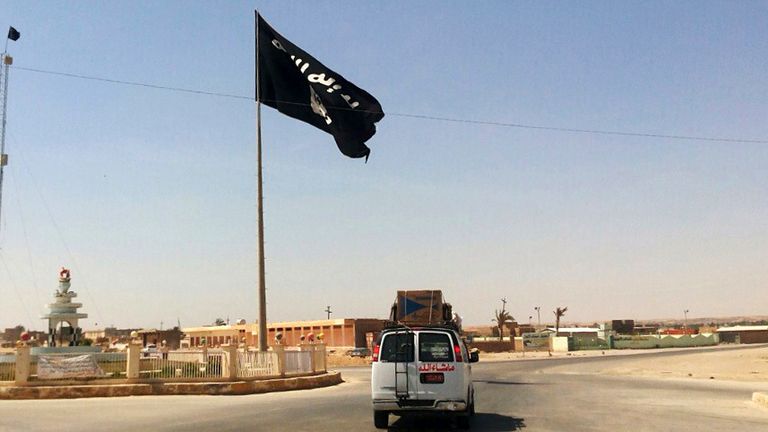Experts say that although it has lost control of large swathes Syria and Iraq, Islamic State is still a threat. It will attempt to free 10,000 Syrian prisoners in 2023, according to experts.
Although the terror group has declined from its peak in 2014, it is still a threat in volatile parts of the Middle East and Afghanistan.
There are also fears that Turkey could launch a ground offensive in Syria, creating the ideal conditions for IS to regain power.
Dr Shiraz Maher, a Middle East expert, says “Blink and it’ll be gone and ISIS will suddenly return.”
Sky News examines IS and whether large tracts of territory could be once more under its banner in a year when other stories dominate the headlines.
Matthew Henman, a terror expert, said that IS has been operating at a “greatly diminished level” since its last bastions fell to Western-backed forces.
He stated that the “level of threat and the level of operational activities have remained reasonably consistent over that type of period.”
“In different key theatres, the group maintained a steady pace of insurgent violence.”
Janes intelligence agency’s Mr Henman said that the group and its affiliates further away are focused on regional instability and have plans to seize territory.
Trying to seize territory in Africa
There are several branches or provinces of IS in the Middle East and Africa. Each region has its own leader, who pledges allegiance the IS overall leader.
After the death of his predecessor, Abu al Hussein al Husseini al Qurayshi became the leader of IS.
The so-called IS caliphate ruled over approximately a third of Syria, and 40% of Iraq at its peak – an area larger than Iceland.
According to Mr Henman, the focus of the group has shifted to West Africa in recent years. There, multinational taskforces have been established to prevent it from gaining a foothold.
Since the Taliban’s return to power, the Taliban’s regional affiliate in Afghanistan, known as the Islamic State of Khorasan Province, has been increasing its attacks.
China advised its citizens to flee the country earlier this month following a coordinated attack by Islamic State militants against a Chinese-owned hotel located in Kabul’s heart.
Continue reading: Islamic State is Africa – How the terror group’s influence spreads across the continent
Struggles to Free Thousands of Imprisoned Militants
Despite its diminishing presence, the threat of IS activity in Syria and Iraq remains.
Kurdish forces in northeast Syria are holding around 70,000 people suspected of being linked to the group, including children and women, and approximately 10,000 IS militants.
IS has made it clear that they intend to release its supporters. It used explosives and vehicles to smash through the walls at Gweiran Prison, Hassakeh, in January to free the 3,000 prisoners.
Senior lecturer at King’s College London Dr Shiraz Maher says that the West’s greatest security threat is the possibility of IS releasing thousands of prisoners of war fighters.
Sky News was informed by him that the Syrian Democratic Forces repeatedly stated that this is a ticking bomb they have (that) they cannot handle on their own.”
Continue reading:
IS ‘Beatle” gets eight life sentences in prison after hostages were killed
Second leader of Islamic State killed in combat
Many of the people being held by SDF forces include foreign fighters. However, many countries have been unwilling to deal with them.
Dr Maher warned that the delicate situation could be at risk if Turkey continues to threaten a land invasion against Kurdish forces.
This development could force Kurdish authorities, who are currently guarding their network of detention centers, to shift resources to the front line. It will create a “massive capability” for IS to liberate its supporters.
Dr Maher stated, “We must think creatively and have the courage to deal with this issue and nip it in its tracks right now.”
“If ISIS returns to Syria and Iraq, people in Berlin, London, and Madrid will be killed.”





















